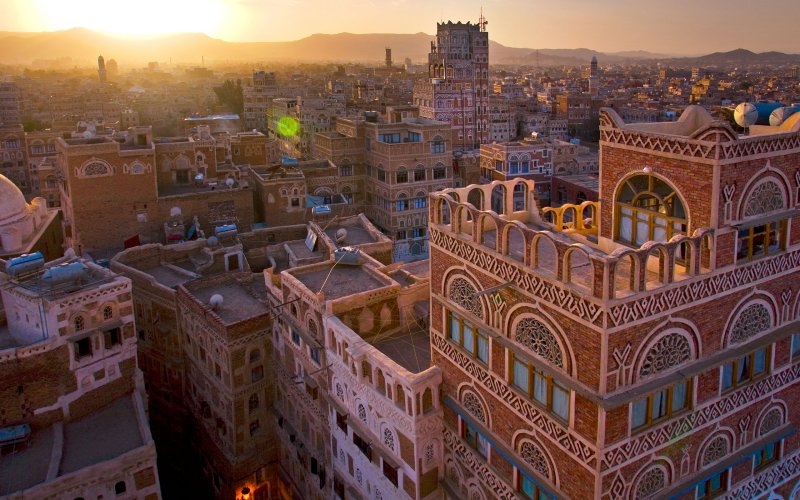This post was triggered by an an excellent piece about the great Joseph Conrad in Prospect magazine. (Though I do think “anticipating terrorism” is too narrow a title, he was anticipating much more). I am posting a couple of excerpts, a piece about Yemen and my copied and pasted remarks from Facebook. Followed by a few random quotes that just came to mind in connection with this. It is an impressionistic post, please don’t connect too many dots 🙂
Conrad gets bad press in some narcissistic pigmy circles these days (who doesn’t?) but he is truly one of the greats. “Under Western Eyes”, for example, should be assigned reading for anyone starting their study of the Russian revolution and much that followed.
From the Clive James piece:
“..They are, in fact, idealists: and idealism is a cast of mind that Conrad questions even more than he questions radicalism. The logical end of radicalism, in his view, is terrorism; but idealism is the mental aberration that allows terrorism to be brought about. Conrad’s originality was to see that a new tyranny could be generated by people who thought that their rebellion against the old tyranny was rational. Thus his writings seem prescient about what was to happen in the Soviet Union.
…As the collision between bliss and destruction gets closer, the reader will spend at least a hundred pages praying that Heyst has a gun hidden away somewhere. The first big slaughterhouse battles of the First World War had already been fought while Conrad was publishing the novel, but there is not a hint of pacifism. Conrad knew that unarmed goodwill is useless against armed malice. It was to be a lesson that the coming century would teach over and over, and so on into the present century: peace is not a principle, it is only a desirable state of affairs, and can’t be obtained without a capacity for violence at least equal to the violence of the threat. Conrad didn’t want to reach this conclusion any more than we do, but his artistic instincts were proof against the slightest tinge of mystical spiritual solace, and so should ours be. Our age of massacres has also been an age of the intellectual charlatan, when people claiming to interpret events can barely be relied upon to give a straightforward account of what actually happened. Conrad was the writer who reached political adulthood before any of the other writers of his time, and when they did, they reached only to his knee.
…Conrad should have made his heroes as intelligent as himself, the better to illustrate his thematic concern with how the historic forces that crush the naive will do the same to the wise, if they do not prepare to fight back. Finally, he tends to reinforce our wishful thought that cultivation—gained, for example, from reading the novels of Conrad—might be enough to ward off barbarism. But barbarism doesn’t care if we are cultivated or not.
Then I saw (via Ali Minai) a tangentially related piece in the daily Beast, about Yemen. Worth a read.
“..And, most tragic, is the loss of life and the irreversible disruption of the lives of Yemeni people who display a deep love of family and extend their warmth and generosity to visitors. I feel diminished that this remarkable country can no longer be discovered by others and that violence is destroying its historic beauty and threatening its extraordinary people.”
My comment on this was typically obsessed with my personal obsessions, but I do think there is a point in there somewhere: There is no escaping the modern world. The technology gap means no premodern society can ever hope to survive unmolested unless they are thousands of miles from anything anyone modern may want. So the real trick is find a way to survive in the modern world (of states and armies and schools) without losing everything you hold dear. This seems difficult, but not impossible. But it seems to be specially hard in the Muslim world because we have our own “almost modern” “primitive-culture-destroying” myth and it makes things just the tiniest bit extra-hard. The shsit could have hit a smallish fan in Yemen just because different groups wanted to fight over it…nothing new about that. And not impossible to survive. But the state ideal does not seem to have enough legitimacy to really settle down (and make the necessary compromises and deals with more advanced countries) in the core Muslim world at this time. It will be a long night in Yemen.
“Heaven and earth are not merciful. To them, men are as straw dogs, destined for sacrifice.”– Lao Tzu
Could man be drunk for ever
With liquor, love, or fights,
Lief should I rouse at morning
And lief lie down at nights.
But men at whiles are sober
And think by fits and starts,
And if they think, they fasten
Their hands upon their hearts.
(AE Houseman)
It takes the Navy three years to build a ship. It will take three hundred years to build a new tradition. The evacuation will continue.. (Admiral Cunningham ordering the Royal Navy to continue the evacuation of Crete in the face of heavy German air attacks)
“With two thousand years of examples behind us, we have no excuses when fighting for not fighting well.” T. E. Lawrence
Once war has been undertaken, no peace is made by pretending there is no war.
—- Duryodhana (and look what happened to him)
He is a fool that practises truth without knowing the difference between truth and falsehood.
— Krishna to Arjuna

